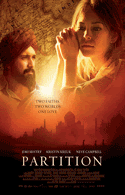
It was no surprise whatsoever to hear the bitterness and resentment towards the Academy in the weeks approaching the ceremonies and the morning after -- of course, most sentiments have now tranformed to that of boredom and/or indifference. In general, I was quite pleased with the show -- a year elevated by pleasant surprises, due recognition, and a particularly adept host. Most notably, it is the story of Martin Scorsese's Best Director victory that is on the minds of most cinephiles, while the tribute to Ennio Morricone is certainly a memorable aside. For those who don't know, Scorsese has had impressive longevity in Hollywood, directing for more than thirty-five years. He's created numerous films of exemplary quality and drawn many of his films to suit his personal interest in morality; it's been said that if Scorsese weren't a director, he'd be a priest as he was once quite involved in the seminary. Of the films he's most associated with, I have the greatest respect for "Taxi Driver," which was an astonishing technical achievement as well a superb meditation on the omni-present theme of morality. Of course, there's always been notices for his work in "Mean Streets," "Raging Bull," "After Hours," "The Last Temptation of Christ," and "Goodfellas." Scorsese's immense knowledge of film has always had an influence on his content and technique, but it also manifests in his general speech; cinema is obviously an extremely meaningful facet of his existence.
The technical awards were suprisingly well-chosen by the Academy with Pan's Labyrinth justly awarded in numerous categories. Although I would very well have liked to see Emmanuel Lubezki receive recognition for his astonishly well structured cinematography in "Children of Men." His lack of acknowledgement from the Academy is worsened in light of his not winning for "The New World" in the previous year.
Although, the Oscars have very little weight in my mind -- for a more authoritative voice in cinema, I'd turn to the Cannes Film Festival -- the awards are generally an excuse to celebrate cinema and I've never be one to turn down such an offer.
- Kurtis















